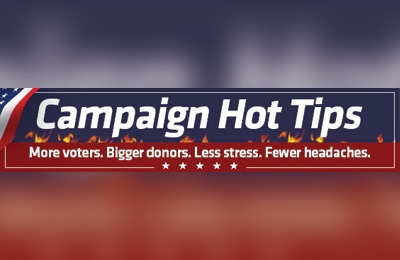(Chuck Muth) – There’s a tremendous advantage to texting voters as compared to emailing: While a good email list can enjoy an “open” rate of 15-25 percent, on average over 90 percent of people open a text message.
And if you’ve developed a list of supporters who have REQUESTED that they receive text messages from you, you’re good as gold. However…
There are a lot of political consultants out there who are tele-matching voter files to cell phone numbers and sending out texts blindly without permission since there apparently isn’t an anti-spam law for texting like there is for email (yet).
So here’s the thing…
There may be a LEGAL work-around that allows for unsolicited text messaging, at least for the time being, but does that mean you should do it?
Lots of candidates are tempted. But even if it’s lawful, there’s a downside: LOTS of voters don’t like it.
Here’s just a small sampling of responses one candidate received recently after sending out a campaign text message…
- “Spamming my phone = instant loss of my vote”
- “You had my vote, but not anymore since I've been spammed by your text!”
- “Dang now I won't vote for you”
- “If you keep texting me, I will vote democrat”
- “I am a Republican; however, I will never vote for a person who bothers me”
- “Yeah, I know who you are I'll vote for you if you quit texting me”
- “Leave me the f*ck alone!!!!!”
So it’s a double-edged sword.
On one hand, you can quickly and inexpensively text a lot of voters who haven’t given specific permission for you to do so. On the other hand, you’re really gonna tick off a lot of people and turn them against you for no reason other than…your unsolicited text.
Text messaging can be a powerful weapon in your campaign arsenal. But it’s best if you develop a program of actively seeking cell phone numbers from voters who willingly and voluntarily provide them to you.

